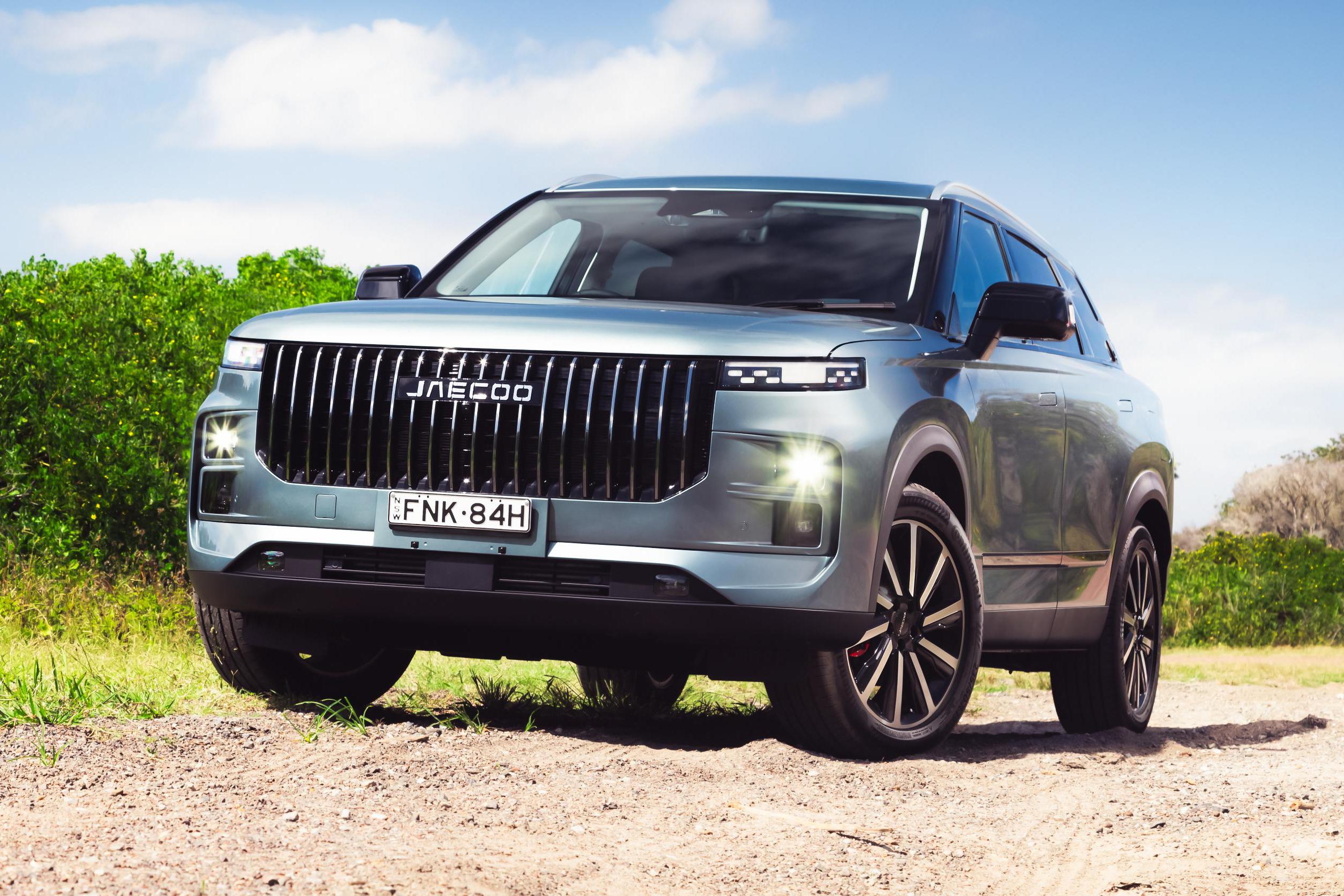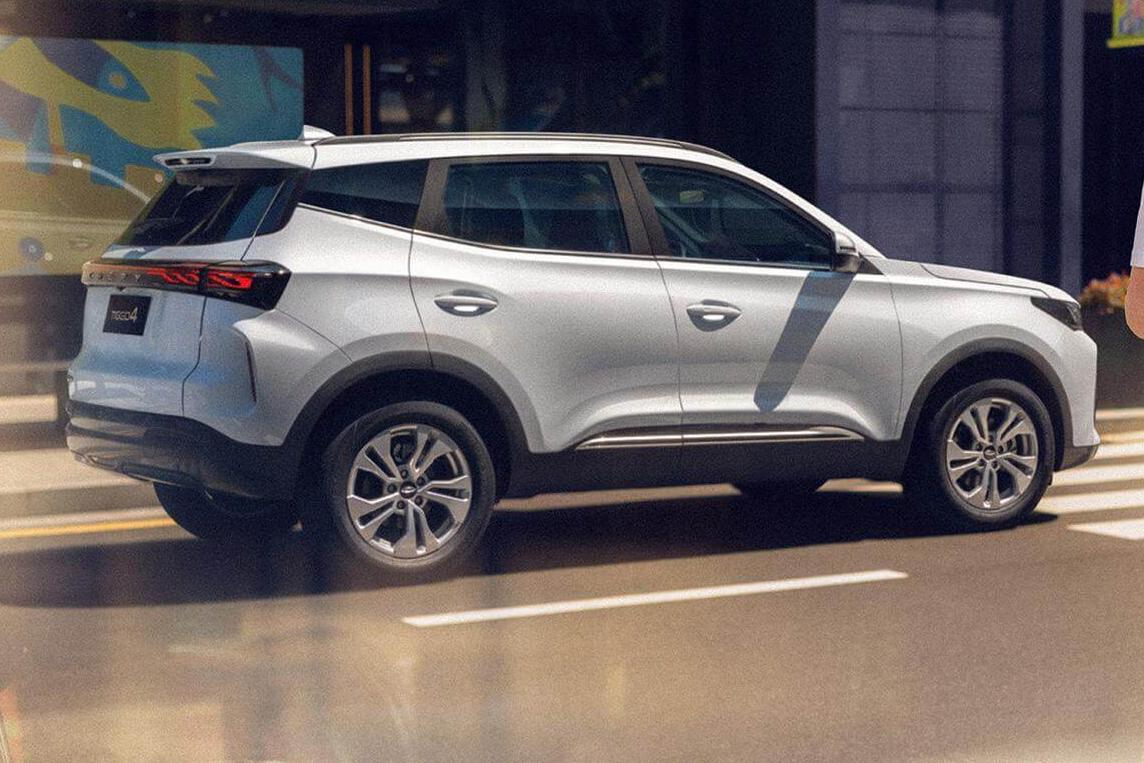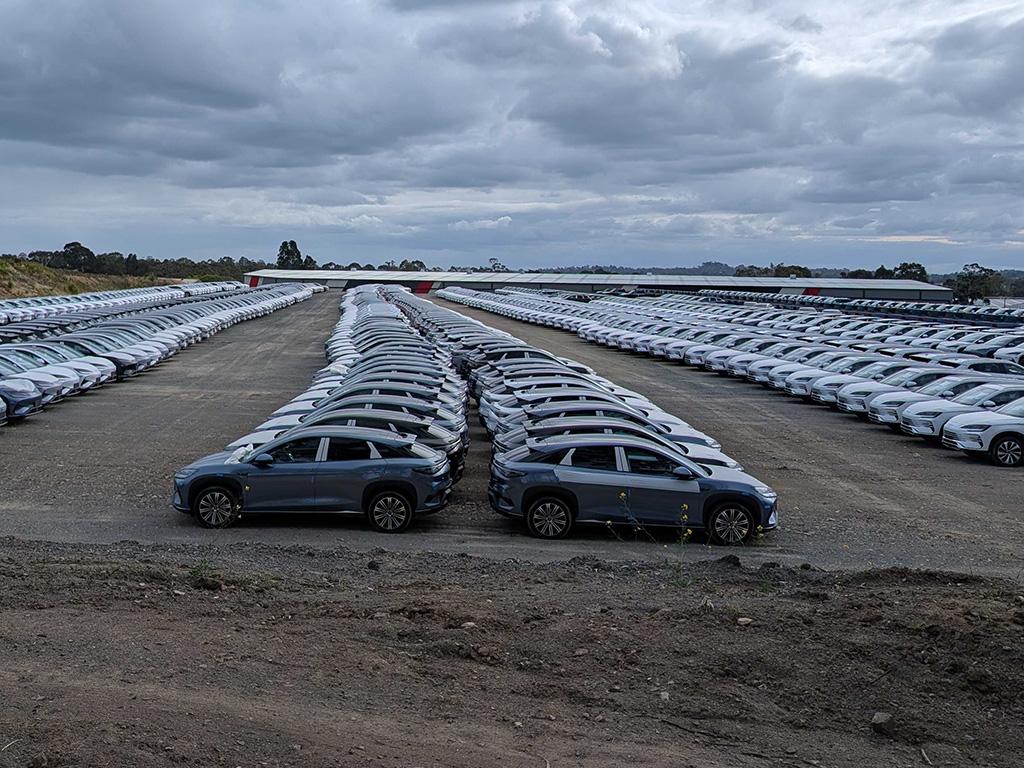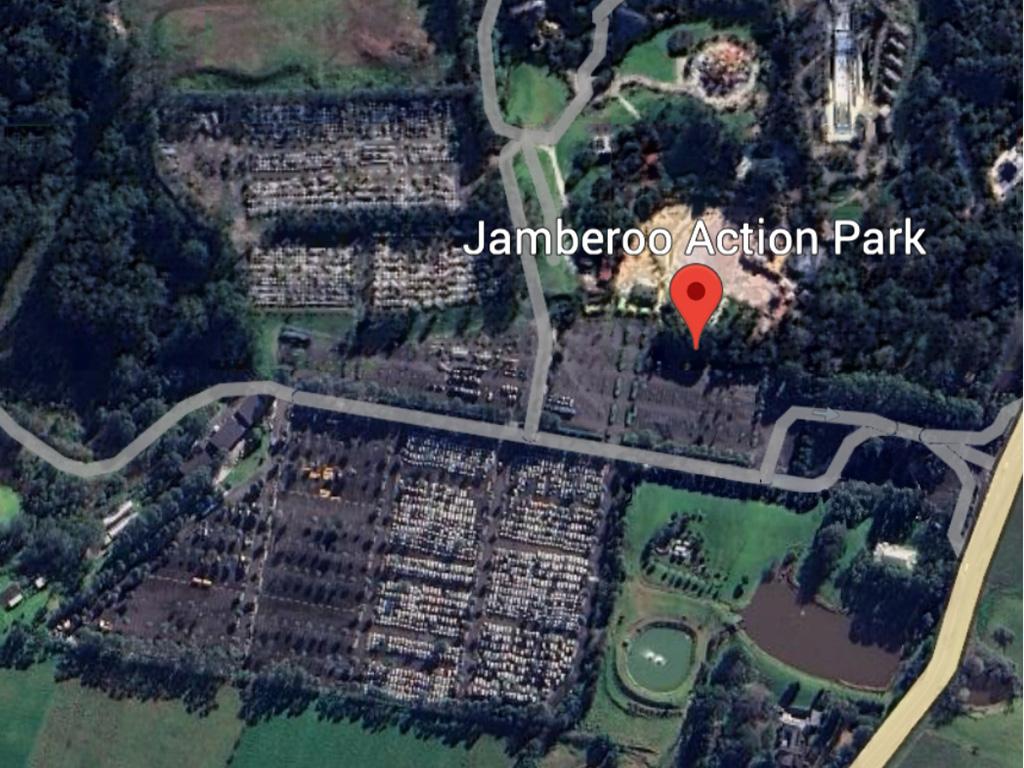New cars continue to be stockpiled in temporary holding yards around Australia as they await pre-delivery and shipment to dealerships, and the latest example uncovered is a large number of Chinese vehicles parked adjacent to Australia’s biggest air base, raising concerns from security experts.
Just days after about 1600 BYD vehicles were deemed to have been stored at Jamberoo Action Park – a family fun park not far from Port Kembla south of Sydney – without local council approval, hundreds of new Chery and Omoda Jaecoo vehicles have now been spotted in a makeshift carpark directly opposite the main entrance and pass office for RAAF Base Amberley southwest of Brisbane.
The influx of new auto brands and models in Australia – particularly from China – has led to bottlenecks in the pre-delivery process between their arrival at shipping ports in capital cities and dealerships around the country.
The surge in new-vehicle imports has led to temporary holding yards being established outside many Australian capitals, including on farmland in the NSW Hunter Valley, as well as vacant blocks, airport precincts and now it seems military installations.
Images published by News.com.au show rows of brand-new Chery and Omoda Jaecoo vehicles parked in a paddock next to Amberley RAAF base without number plates and wrapped in protective factory plastic, leading to claims they could pose a national security threat.
CarExpert can save you thousands on a new car. Click here to get a great deal.

One security expert called for urgent action, warning that the connected-car functionality of some Chinese vehicles could be used for ‘hybrid warfare’ if the Chinese government chose to weaponise the technology.
“They have cameras and LiDAR and microphones that essentially allow real-time observation of what’s around them. The manufacturer has access to all of those things,” chief strategy officer at CyberCX, Alastair MacGibbon, told News.com.au.
Mr MacGibbon, a former national cybersecurity adviser to the Turnbull government who previously warned that modern vehicles are “listening and surveillance devices”, said electric vehicles (EVs) could be turned into “ticking time bombs”.
“Could you theoretically cause harm using these vehicles? Yes, you could have the vehicles have accidents, but you could also turn off the safety features for things like charging which prevent these things from blowing up. There are people who can do that from the manufacturer by literally updating the software on the device,” he said.

Mr MacGibbon told News.com.au that allowing Chinese-made EVs to enter Australia in large numbers unchecked was inconsistent with the nation’s security priorities, and said the last decision of the Turnbull government’s National Security Committee was to exclude high-risk vendors from 5G networks.
“I’ll tell you what will have bigger political and economic consequences: when these devices are turned off, or when we realise the extent of the mass surveillance occurring through them. Then we’ll rue the day we didn’t make tough but logical choices about where we allow these technologies to be used in our economy and society,” he said.
Australia has rules around the protection of customer data collected by automakers, but today many new cars employ a variety of cameras and sensors – both inside and out – to facilitate some advanced driver assistance and infotainment functions, while connected-car services allow external functionality including remote operation of some vehicle features via smartphone.
However, some security experts say these systems could be used to collect data that then becomes accessible to the Chinese government – which part-owns many major Chinese automakers – because Chinese law requires companies to co-operate with state intelligence agencies.
Founder of Strategic Analysis Australia and former defence department official Michael Shoebridge told News.com.au that Chinese-made EVs pose real risks that Australia is failing to address.
He said modern EVs are “software-defined systems – more like smartphones on wheels than old Falcons” and that their constant connectivity gives Chinese intelligence agencies an abundance of data.

“From an intelligence collection point of view, this creates great opportunities for Chinese security agencies to have periodic access to information collected about the car’s use… and also potentially to information recorded by the vehicle while in use,” he said.
“Every Chinese company is obliged to co-operate with Chinese intelligence services and to deny having done so.
“So the risks are real, but Australian government policy to deal with the risks is non-existent – with a possible reason being that any firm regulatory action or even acknowledgment of the problem could rain on the wonderful ‘stabilised’ relationship our government says it has built with the regime in Beijing.”
Mr Shoebridge pointed out that China itself banned Teslas from military and government premises due to similar surveillance concerns, which he said was proof that “Chinese agencies are aware of the opportunities”.
The UK government earlier this year introduced restrictions requiring Chinese‑made EVs to be parked at least two miles (3.2km) away from sensitive areas due to concerns their on-board sensors could be used to collect data.

Similar concerns have been raised in the US, where authorities have restricted the movement of Chinese-made vehicles around defence and government facilities, and will ban Chinese software and hardware from being used in connected vehicles from the 2027 model year.
In a statement to News.com.au, the Department of Defence confirmed it’s “aware that vehicles manufactured by a Chinese company” are currently being stored on private land alongside RAAF Base Amberley.
It said it has “assessed the site” and continues to “monitor movements around the Defence estate to ensure the highest levels of safety and security are maintained”, adding that it “does not comment on individual security arrangements at bases” but uses a “layered approach to security” including security contractors, military police, and local authorities to “keep bases secure and respond to external threats”.
And for its part, Ipswich City Council told News.com.au the land is zoned for medium-impact industrial use, allowing storage activities, but noted that some operators “may be subject to development approval”.
MORE: Stockpiled BYD cars declared illegal as council rejects application

